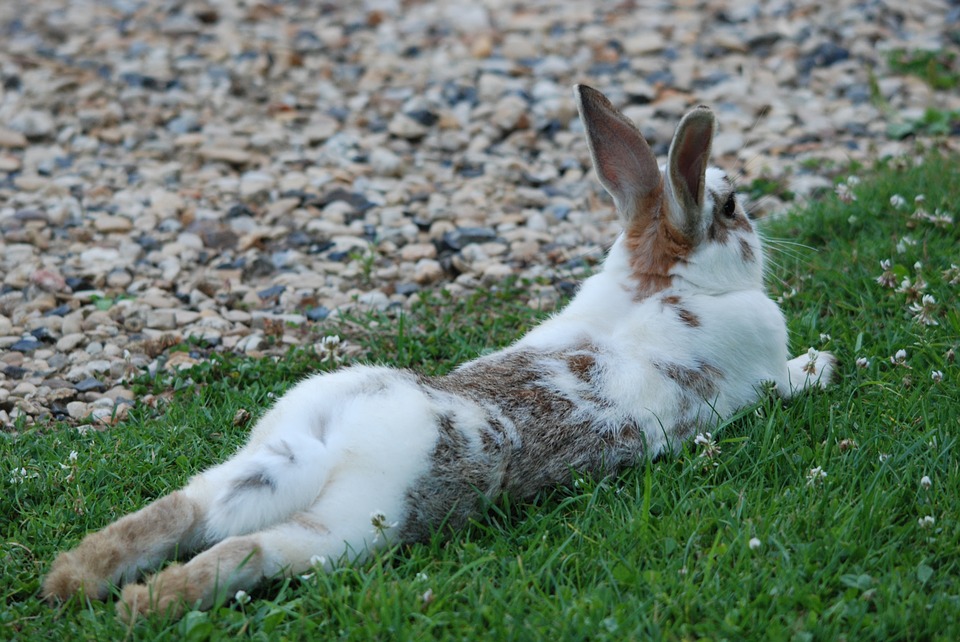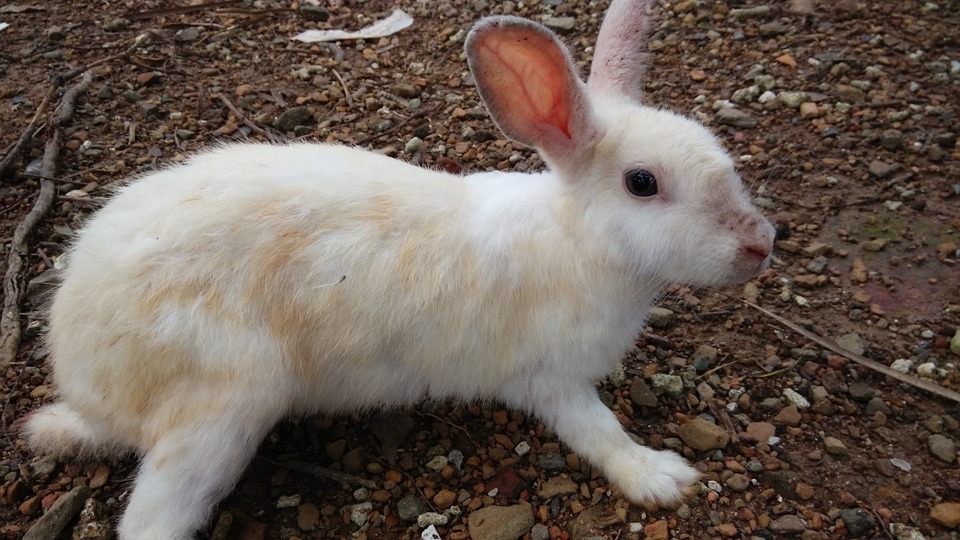This comprehensive guide explores the wonderful world of rabbit-friendly vegetables, providing insights into which greens are safe for your furry friend to enjoy, offering details on their nutritional benefits, potential risks, and practical tips for introducing new foods to your rabbit's diet.
Part 1: Understanding Rabbit Nutrition

1.1 The Importance of a Balanced Diet
Rabbits are herbivores, meaning their diet should consist primarily of plant matter. A balanced diet is crucial for their overall health, contributing to:
- Optimal Digestive Health: A high-fiber diet helps maintain a healthy digestive tract, preventing issues like hairballs and digestive upset.
- Dental Well-being: Constant tooth growth requires regular chewing on fibrous greens to prevent overgrown teeth and dental problems.
- Preventing Obesity and Health Complications: A diet rich in fiber and low in sugars helps maintain a healthy weight and minimizes the risk of obesity-related illnesses.
1.2 The Dietary Building Blocks
- Hay: The cornerstone of a rabbit's diet, providing essential fibre, vitamins, and minerals.
- Fresh Greens: Supplementing hay with a variety of greens adds essential vitamins, minerals, and antioxidants.
- Pellets: A concentrated source of nutrients, but should be offered in limited quantities to prevent obesity.
- Fresh Water: Access to clean, fresh water is crucial for hydration and overall health.
Part 2: Safe and Nutritious Greens for Your Rabbit

2.1 Leafy Greens: A Treasure Trove of Nutrients
2.1.1 Popular Choices:
- Dandelion Greens: A nutritional powerhouse, packed with vitamins A, C, and K, as well as calcium. They are particularly high in potassium, which is important for muscle function and nerve transmission.
- Spinach: Rich in iron, vitamin A, and vitamin K, but should be given in moderation due to its high oxalate content, which can bind to calcium and hinder its absorption.
- Kale: A good source of vitamin C, vitamin K, and calcium, also high in vitamin A. It is a good source of fibre and can aid in digestion.
- Collard Greens: Rich in vitamins A, C, and K, as well as calcium and iron. These greens also contain sulforaphane, a compound that has been shown to have anti-cancer properties.
- Mustard Greens: A good source of vitamins A, C, and K, and minerals like calcium and iron. They also contain glucosinolates, which have been shown to have antioxidant and anti-inflammatory properties.
- Endive: A crunchy, slightly bitter green rich in vitamin A, vitamin C, and potassium. It can be enjoyed fresh or cooked.
- Radicchio: Similar in flavour to endive, but slightly sweeter and more palatable for rabbits. It is a good source of vitamin A, vitamin C, and vitamin K.
- Romaine Lettuce: A safe choice, but offer in moderation as it's lower in nutrients than other leafy greens. It is a good source of vitamin C and potassium.
2.1.2 Introducing New Greens:
- Gradual Introduction: Begin by offering a small amount of a new green and monitor your rabbit's reaction. Observe for any signs of digestive upset, such as diarrhoea, gas, or lethargy.
- Increase Gradually: If your rabbit tolerates the green well, gradually increase the quantity over a few days.
- Variety is Key: Offer a variety of greens to ensure your rabbit receives a balanced diet and enjoys a diverse range of flavours.
2.2 Root Vegetables: Adding Variety and Flavor
2.2.1 Popular Choices:
- Carrots: A tasty and popular treat, but should be given in moderation due to their high sugar content. They are a good source of vitamin A, vitamin K, and fibre.
- Celery: A good source of vitamin C and fibre, but should be offered in small quantities as it can be slightly fibrous. It can be chopped into smaller pieces to make it easier for rabbits to digest.
- Parsley: A rich source of vitamin K, but should be given in small amounts. It is also a good source of iron and vitamin C.
- Broccoli: A good source of vitamin C and fibre, but the stem is more palatable than the florets for rabbits. Avoid giving the florets as they are difficult to digest and may cause bloating.
- Cauliflower: A safe option, but should be offered in small quantities. The florets should be chopped into small pieces to make them easier to digest.
2.3 Other Safe Vegetables: Expanding the Options
2.3.1 Stems and Flowers:
- Dandelion Flowers: A safe and tasty treat for rabbits, rich in vitamins A and C. They are also a good source of antioxidants.
- Hibiscus Flowers: A colourful and tasty addition to a rabbit's diet, containing antioxidants. They can be offered fresh or dried.
- Zucchini: A good source of vitamin C and potassium, it can be offered fresh or cooked. Avoid the seeds as they can be difficult to digest.
Part 3: Understanding Potential Risks
3.1 Toxic Greens: Vegetables to Avoid
- Rhubarb: Contains oxalic acid, which is toxic to rabbits and can cause kidney damage.
- Iceberg Lettuce: Low in nutrients and high in water, which can cause diarrhoea and digestive upset. It can also lead to a lack of essential vitamins and minerals.
- Spinach (Large Amounts): High in oxalates, which can bind to calcium and hinder its absorption, leading to calcium deficiency. Offer spinach in small amounts only.
- Arugula: Contains goitrogens, which can interfere with thyroid function. Avoid giving it to rabbits with thyroid conditions.
- Beet Greens: Contain nitrates, which can convert to nitrites in the stomach and are potentially harmful. Offer beet greens in small amounts only and ensure they are washed thoroughly.
- Avocado: Contains persin, a toxin that can cause heart problems in rabbits. Even small amounts can be dangerous.
- Onions and Garlic: Contain thiosulphate compounds, which can damage red blood cells. Avoid giving any part of these plants to rabbits.
3.2 Potential Risks:
- High Sugar Content: Avoid vegetables like corn, peas, and beans as they are high in sugar and can contribute to obesity and dental problems.
- Gas-Producing Vegetables: Cabbage, broccoli, and cauliflower can cause gas and bloating in rabbits, especially when introduced in large quantities. Offer in small amounts and monitor your rabbit's reaction.
- Pesticides: Wash all vegetables thoroughly before feeding them to your rabbit to remove any pesticide residue. Organic vegetables are recommended whenever possible.
Part 4: Introducing Greens to Your Rabbit
4.1 Gradual Introduction:
- Start Small: Begin by offering a small piece of a new green and monitor your rabbit's reaction for 24 hours.
- Observe for Signs of Digestive Upset: Watch for diarrhoea, gas, lethargy, or any change in appetite. If you notice any signs, stop giving the new green and consult with your veterinarian.
- Increase Gradually: If your rabbit tolerates the green well, gradually increase the quantity over a few days. Never introduce more than one new green at a time.
- Variety is Key: Offer a variety of greens to ensure your rabbit receives a balanced diet and enjoys a diverse range of flavours.
4.2 Freshness and Storage:
- Choose Fresh: Select fresh, organic greens whenever possible, as they are generally more nutritious and less likely to contain pesticide residue.
- Wash Thoroughly: Wash greens thoroughly under cold running water to remove dirt, debris, and any pesticide residue.
- Store Properly: Store leftover greens in the refrigerator in airtight containers for up to 2 days.
Part 5: Additional Tips and Considerations
5.1 Dietary Ratios and Timing:
Hay: Should make up the majority of your rabbit's diet (approximately 80% of their total intake).
Greens: Offer approximately 1-2 cups of greens per day, depending on your rabbit's size and activity level.
Pellets: Offer a small amount of pellets (approximately 1/4 cup per day for an adult rabbit).
Feeding Schedule: Offer hay and water freely throughout the day. Greens can be given in the morning and evening.
5.2 Encouraging Green Consumption:
- Variety: Offer a wide selection of greens to find what your rabbit enjoys most.
- Chop into Small Pieces: Make greens easier to eat by chopping them into smaller pieces, particularly for younger or senior rabbits.
- Mix with Other Foods: Mix greens with hay or pellets to encourage consumption.
- Fresh and Appealing: Offer greens fresh and at different times of day.
- Patience and Persistence: It may take time for your rabbit to develop a taste for greens. Be patient and persistent, and they will eventually come around!
Part 6: FAQs
6.1 Can rabbits eat all types of lettuce?
While romaine lettuce is a safe option, it's best to avoid iceberg lettuce as it lacks nutrients and can cause digestive issues. Other lettuces like butterhead lettuce and leaf lettuce are also safe in moderation.
6.2 Can rabbits eat herbs?
Yes, many herbs are safe for rabbits, such as parsley, cilantro, dill, and basil. However, it's important to offer herbs in small quantities as some can be strong for sensitive stomachs.
6.3 Is it safe to give my rabbit fruit?
While some fruits are safe in moderation, it's important to limit their intake due to their high sugar content. Safe fruits include small amounts of strawberries, blueberries, raspberries, and bananas. Offer these only as occasional treats.
6.4 What should I do if my rabbit has digestive problems after eating greens?
If your rabbit experiences diarrhoea, gas, or lethargy after eating greens, withhold all fresh foods and offer only hay and water. You may consider a probiotic to help restore gut health. Consult with your veterinarian for further guidance.
6.5 How much greens should I feed my rabbit?
A general rule of thumb is to offer 1-2 cups of greens per day, depending on your rabbit's size and activity level. It's essential to provide a balanced diet of hay, greens, and a small amount of pellets.
6.6 Can I give my rabbit cooked vegetables?
Cooked vegetables are generally not recommended for rabbits. The cooking process can destroy nutrients and make vegetables harder to digest.
6.7 Should I give my rabbit supplements?
Supplements are generally not necessary for healthy rabbits that eat a balanced diet. If your veterinarian recommends a specific supplement, follow their instructions carefully.
6.8 Can I give my rabbit vegetables from my garden?
As long as the vegetables are organic and free of pesticides, you can safely give your rabbit vegetables from your garden. Ensure they are thoroughly washed before feeding.
Remember, consulting with your veterinarian is always recommended for personalized advice regarding your rabbit's diet and overall health. Enjoy discovering new and delicious greens to share with your beloved bunny!
Everyone is watching
-

Do Rabbits Lay Eggs? (The Surprising Truth)
OTHER TYPES OF PETSThis article will unravel the common misconception that rabbits lay eggs, exploring the fascinating world of r...
-

Can Rabbits Eat Grapes? A Guide to Safe Rabbit Treats
OTHER TYPES OF PETSThis comprehensive guide will explore the safety and suitability of grapes for rabbits, providing detailed inf...
-

What's a Group of Rabbits Called? (A Comprehensive Guide)
OTHER TYPES OF PETSThis article delves into the fascinating world of rabbits, exploring the various terms used to describe a grou...
-

Predators That Hunt Rabbits: A Guide to Natural Enemies
OTHER TYPES OF PETSI've always been fascinated by the circle of life, that delicate dance between predator and prey. Growing up ...
-

Are Rabbits Nocturnal Animals?
OTHER TYPES OF PETSThe question of whether rabbits are nocturnal animals is a fascinating one, with a surprisingly complex answer...
